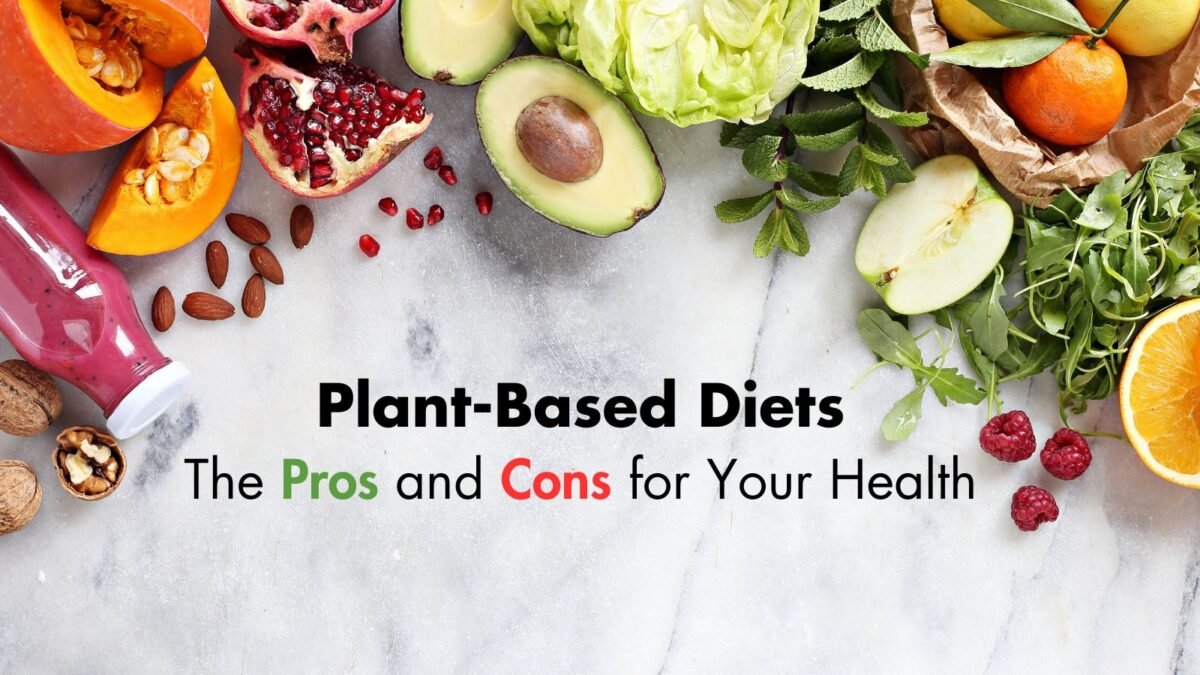Plant-based diets have gained immense popularity in recent years, celebrated for their potential health benefits and positive environmental impact. But is it the right choice for you? Like any dietary approach, plant-based eating has its advantages and challenges, and understanding both can help you make an informed decision.
At my nutrition counseling practice, I believe in personalized approaches to health. Let’s dive into the pros and cons of plant-based diets and how you can optimize this way of eating if you choose to adopt it.
What Is a Plant-Based Diet?
A plant-based diet primarily focuses on foods derived from plants, including vegetables, fruits, whole grains, legumes, nuts, and seeds. While some people exclude all animal products (vegan), others include limited amounts of animal-derived foods like eggs, dairy, or seafood (vegetarian, pescatarian, or flexitarian).
The Pros of Plant-Based Diets
1. Rich in Nutrients
Plant-based diets are naturally high in vitamins, minerals, antioxidants, and fiber, which can support overall health and protect against chronic diseases.
2. Supports Heart Health
Studies show that plant-based diets can lower cholesterol levels, reduce blood pressure, and improve overall heart health. Foods like nuts, seeds, avocados, and whole grains are excellent for cardiovascular wellness.
3. May Aid in Weight Management
Plant-based diets are often lower in calorie density and higher in fiber, promoting satiety and helping with weight management.
4. Reduced Risk of Chronic Diseases
Plant-based eating is associated with a lower risk of conditions like Type 2 diabetes, certain cancers, and obesity. The emphasis on whole, minimally processed foods provides protective benefits.
5. Environmentally Friendly
Shifting to a plant-based diet can reduce your carbon footprint. Producing plant foods generally requires fewer resources and generates less greenhouse gas emissions than animal agriculture.
The Cons of Plant-Based Diets
1. Potential Nutrient Deficiencies
Some nutrients are more challenging to obtain from plants alone, including:
- Vitamin B12: Found primarily in animal products, B12 is crucial for nerve health and red blood cell formation.
- Iron: While plant sources of iron (non-heme iron) exist, they are less easily absorbed than the iron from meat.
- Omega-3 Fatty Acids: Found in fish, these are essential for brain and heart health. Plant sources like flaxseeds and walnuts provide ALA, but conversion to DHA and EPA is limited.
- Calcium and Vitamin D: Essential for bone health, often sourced from dairy or fortified foods.
- Protein: While achievable through plants, meeting protein needs can require careful planning.
2. Can Be Restrictive
Completely cutting out animal products can feel limiting, especially in social settings or while dining out. This restriction may lead to frustration or difficulty adhering to the diet long-term.
3. Requires Careful Planning
Meeting all your nutritional needs on a plant-based diet takes knowledge and effort. Without proper planning, it’s easy to rely on processed plant-based foods, which may be high in unhealthy fats, sugars, and sodium.
4. May Not Suit Everyone
Some people thrive on a plant-based diet, while others may feel low in energy or struggle to meet their nutritional requirements. This can depend on individual factors like genetics, activity levels, and pre-existing health conditions.
How to Optimize a Plant-Based Diet
If you’re considering a plant-based diet or are already following one, here are tips to ensure you’re getting the nutrients you need:
1. Focus on Whole Foods
Prioritize whole, minimally processed plant foods for maximum nutrient density.
2. Diversify Your Protein Sources
Incorporate a variety of plant proteins like lentils, chickpeas, tofu, tempeh, quinoa, and edamame to meet your amino acid needs.
3. Supplement Wisely
Consider supplements for nutrients like vitamin B12, omega-3s, and vitamin D, especially if you follow a strict vegan diet.
4. Combine Foods for Better Absorption
- Pair vitamin C-rich foods (like citrus fruits) with iron-rich foods (like spinach) to boost iron absorption.
- Include healthy fats (like avocado or olive oil) to enhance absorption of fat-soluble vitamins.
5. Plan for Convenience
Prepare snacks and meals ahead of time to avoid reliance on processed plant-based alternatives.
Is a Plant-Based Diet Right for You?
The decision to adopt a plant-based diet depends on your health goals, lifestyle, and personal preferences. For some, it’s a sustainable and health-promoting way of eating. For others, a more flexible approach that includes some animal products may be a better fit.
Final Thoughts
Plant-based diets offer numerous health and environmental benefits but require mindful planning to ensure nutritional adequacy. Whether you’re curious about going plant-based or need guidance on balancing your current diet, my nutrition counseling practice is here to help. I provide personalized advice to meet your unique needs and goals.
Contact me today to start your journey toward a healthier, balanced lifestyle—plant-based or otherwise!
Your Nutrition Counseling Practice
Empowering you to make informed choices for optimal health.

